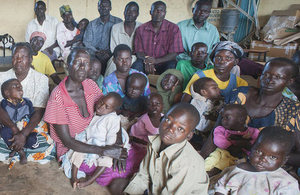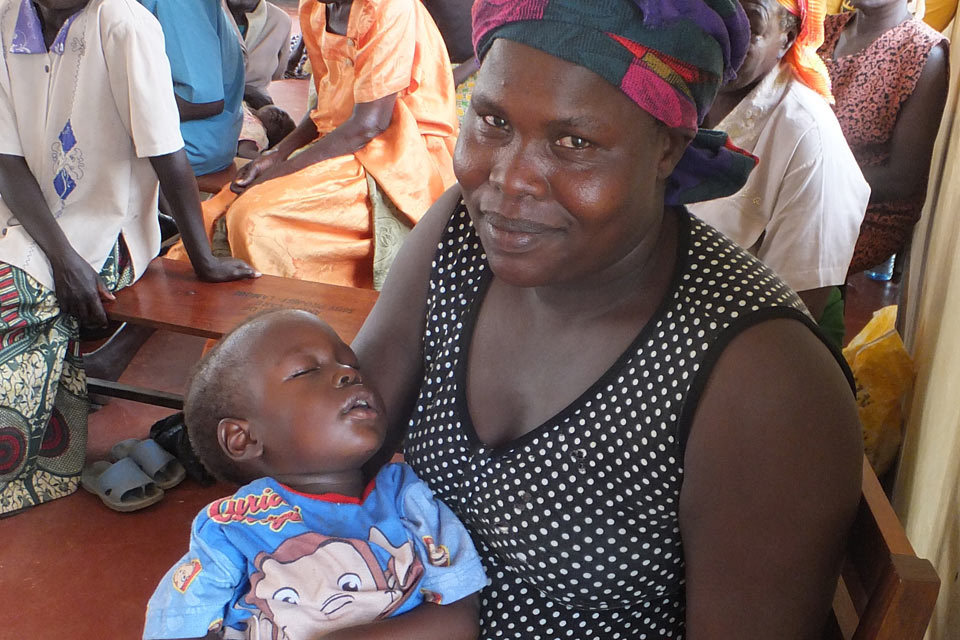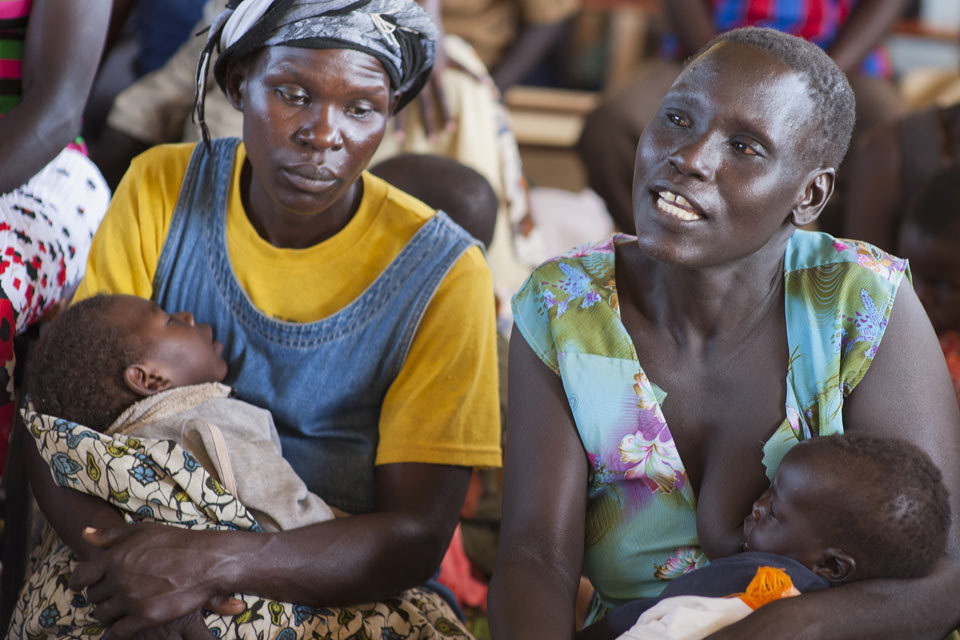A mother and son take disability out of the shadows in Uganda
How a UK aid funded project supports mothers with disabled children in some of the poorest parts of the world.

Mothers attend a workshop with their children. Picture: Motivation

Agnes with her son Sunday at a Motivation training session. Picture: Motivation
Meet three-year-old Sunday and his mother Agnes. Today Sunday can feed himself, play outside and kick a football. And Agnes hopes that one day her son will go to school.
But life for Agnes and Sunday used to be very different. Sunday has cerebral palsy and when he was born Agnes was put under huge pressure to abandon him.
Much of Agnes’ community thought he was cursed and believed his cerebral palsy was the result of witchcraft. Feeling desperate and alone, Agnes hid Sunday away inside his house for the first 2 years of his life.
“People were calling my child ‘ghost’ so I used to hide him”, says Agnes. “I thought I was the only one with a disabled child.”
Living in the margins
Unfortunately, Sunday and Agnes’ experiences are not unique. People with disabilities are among the most marginalised, neglected and vulnerable groups in the developing world.
In countries like Uganda, a disabled child is seen as a curse, bringing shame on the family. Mothers are often told to abandon or even kill their infant child.
Children with cerebral palsy are frequently left lying on the floor. They can live lonely, miserable and isolated lives, suffering from malnutrition, respiratory problems or pressure sores. In the very worst cases, they die.
Agnes’ own mother-in-law chased her and Sunday out of the family home. She still refuses to have any contact with them.
This marked a turning point for Agnes. She joined Motivation’s mother and child support group, funded by UK aid from the Department for International Development (DFID).

Motivation training sessions teach mothers how to care for their disabled children and give them an opportunity to make friends. Picture: Motivation
Through the group she has made friends with other women, who have gone through the same experiences.
She has also learned how to take care of Sunday and how to keep him alive.
Children with cerebral palsy often struggle to eat. Simple techniques like supporting their jaw whilst they try to chew and swallow can make a huge difference.
Agnes now knows how to position Sunday correctly, to avoid life-threatening pressure sores.
“I thought I was the only one with a disabled child,” explains Agnes.
“When I started attending the meeting, I realised that there were a lot of other children with disabilities. Before, Sunday could not use his hands. Now he can eat on his own.
“Now I believe in my child. He can play - he can even kick a ball. I am also realising that he is actually very clever. I am going to register to send him to send him to school.”
A better future
Many of the villagers have changed their attitude towards Sunday, because of the improvements he has made. Today he has lots of friends, enjoys telling stories and loves to play outside.
And Agnes is growing in confidence thanks to the support from Motivation. She’s begun planning a future for her son and is saving to fund a joint agricultural project and open a store to sell the produce.
Agnes also wants to share what she’s learnt.
“I want to be able to help. I never went to school so I feel proud that because of the training I have had, I can support others.”
Facts and stats
- More than 1 billion people have a disability - 80% of these people live in developing countries and 800 million live in poverty.
- UK-based charity Motivation, supported by the UK government through the Global Poverty Action Fund, is working in Uganda to help change attitudes towards children with disabilities, particularly among their own mothers.
- The UK is working across the world to improve the lives of people with disabilities. DFID recently announced that any school construction supported directly by the UK will allow disability access, when currently almost 90 per cent of children living with disabilities in Africa do not regularly attend schools.